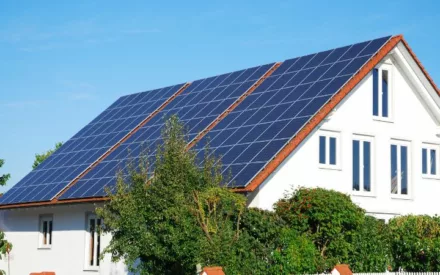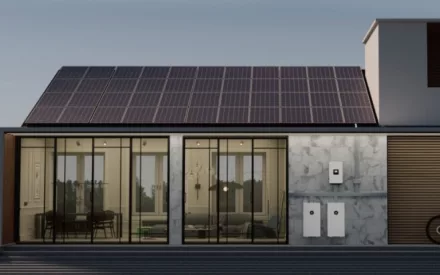Pros and Cons of Solar Energy: What are the solar energy advantages and disadvantages?
Are you curious about solar renewable energy? It’s a growing trend that many homeowners are exploring for clean and renewable energy. Understanding the advantages and disadvantages of solar power can help you decide if it’s the right choice for you.
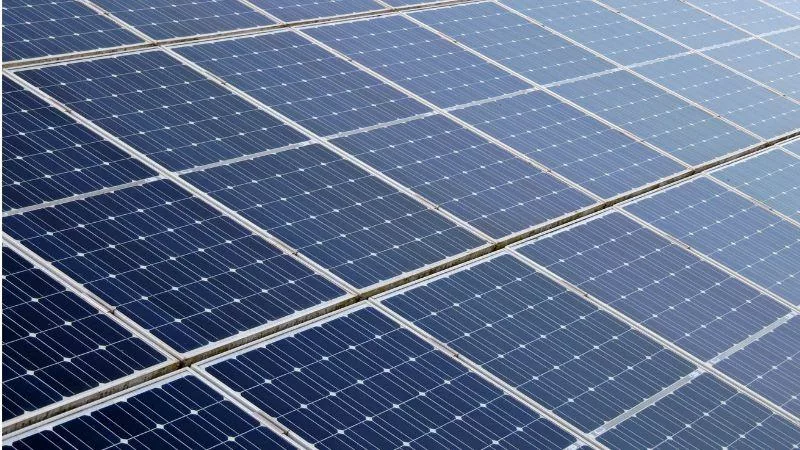
Solar energy offers many benefits, including reduced electricity bills and a smaller carbon footprint. The technology has improved significantly, making it easier to harness the sun’s power efficiently. However, there are also challenges, such as high initial costs and the need for sunlight.
As you consider switching to solar, it’s essential to weigh both the positives and the negatives. Knowing what to expect can help you make an informed decision that suits your needs and values. Get ready to discover more about how solar energy can impact your life!
Definition of Solar Energy
Solar energy comes from the sun’s radiation. It is a renewable resource, meaning it won’t run out as long as the sun shines. Solar energy is harnessed through several methods, primarily:
- Photovoltaic (PV) systems: These use solar panels made of materials that convert sunlight directly into electricity through the photovoltaic effect.
- Solar thermal collectors: These systems capture the sun’s heat to warm water or other fluids. They can be used for:
- Solar water heating: Flat-plate collectors or tubes circulate water or another fluid to absorb solar heat, which is then used to heat water for domestic or commercial use.
- Concentrated solar power (CSP): Large-scale systems that use mirrors or lenses to concentrate sunlight, generating high temperatures to produce steam and drive turbines for electricity production.
- Passive solar design: This approach involves designing buildings to maximize natural heating, cooling, and lighting by optimizing the placement of windows, thermal mass, and insulation.
- Solar-powered products: Many everyday items now incorporate small solar panels to harness energy for various applications, such as solar reading lights, lanterns, torches, and fans.
- Solar vehicles: While still in development, solar-powered cars are being explored as a potential way to harness solar energy for transportation.
Do the benefits of utilizing solar energy outweigh the drawbacks or do the drawbacks outweigh the benefits? Let’s explore the pros and cons of solar energy next.
Advantages of Solar Energy
Renewable and abundant
Solar energy is a renewable resource that is incredibly abundant. The sun provides enough energy in just 1.5 hours to meet global energy needs for an entire year.
The sun has been providing energy to Earth for billions of years and is expected to continue doing so for billions more. As long as the sun exists, we will have access to solar energy.
Environmental Benefits
Solar energy can help reduce your carbon footprint. Unlike fossil fuels, solar power generates clean energy with no greenhouse gas emissions. This change allows you to contribute to a healthier planet.
Solar panels harness sunlight that won’t run out. By shifting to solar, you decrease the demand for fossil fuels, which can harm the environment. Reducing reliance on these fuels also mitigates air pollution.
This shift not only benefits you but also future generations. Protecting the environment is crucial for sustainability, and solar energy plays a key role in that mission.
Reduces electricity bills
Solar investment can bring you a return. Solar panels allow you to generate your own electricity, reducing the amount you need to purchase from the grid. This directly lowers your electricity costs.
Energy Independence
Solar energy increases your energy independence. The application of solar panels helps rely less on traditional energy sources and the fluctuations in their prices.
Creating your own electricity protects you from unpredictable market changes and rising power prices. This stability allows you to plan your budget more effectively.
Also, when communities embrace solar power, they can collectively reduce their dependence on fossil fuels. This promotes energy security by ensuring a more stable energy supply.
Low maintenance
Solar energy systems, particularly photovoltaic panels, have very few or no moving parts. This significantly reduces the potential for mechanical failures and wear and tear, minimizing the need for repairs or replacements.
Solar power systems typically last 25 to 30 years before requiring any significant maintenance. Even after three decades, most systems still perform at 85% efficiency or better.
While there may be occasional costs for professional inspections or cleanings, these are generally infrequent and relatively low.
Homeowner Advantages
Installing solar panels can raise your home’s value. Many homebuyers are attracted to properties with existing solar systems, as they promise lower utility bills and environmental benefits.
Solar energy also comes with net metering programs in many areas. This means you can sell excess electricity back to the grid, further increasing your savings.
Moreover, with rising property taxes based on increased home value, many regions offer property tax exemptions for solar installations. This makes solar not just a smart financial choice but a boost to your home’s market appeal.
The benefits of solar energy offer an opportunity to save money, protect the environment, and enhance your living space.
Disadvantages of Solar Energy
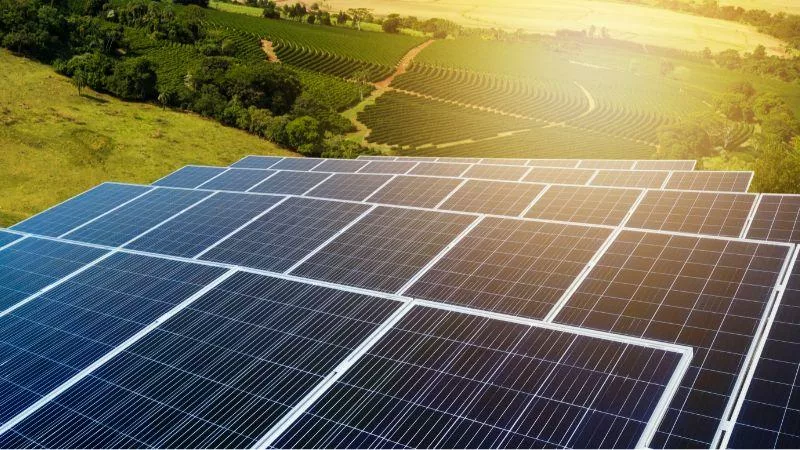
Initial Costs and Investment
One of the main disadvantages is the high initial cost of solar panel installation. The price of installing a solar panel can range from several thousand to tens of thousands of dollars. This includes the cost of the panels, inverter, and installation.
While prices have been decreasing, the upfront investment can still be a barrier for many homeowners. It may take years to see a return on your investment through savings on utility bills, making this a significant consideration.
Maintenance and Durability
Solar panels are often marketed as low maintenance, but they do require some care. You will need to clean the panels to ensure optimal efficiency, especially if dirt, leaves, or snow accumulate.
While generally durable, panels can be damaged by severe weather like hail or high winds. Maintaining your solar system might mean occasional repairs, which could add to your costs. Most panels come with warranties, but you should still budget for potential maintenance expenses over the lifespan of the system.
Dependence on Weather Conditions
Sunlight is the source of energy, which makes solar energy weather-dependent. On cloudy days or during winter months, your solar panels may produce less electricity.
This variability can affect how much energy you rely on from your system.
Space requirements
Solar panel efficiency affects space requirements. The amount of electricity a solar panel system can produce is directly related to the surface area it covers. More panels require more space but generate more power.
Roof constraints
Solar panel installation and performance depend significantly on roof characteristics.
The direction of roof faces is crucial. In the Northern Hemisphere, south-facing roofs are ideal as they receive the most direct sunlight throughout the day. West and east-facing roofs can also be suitable, though they may produce 10-20% less energy than south-facing ones.
And the angle or slope of the roof affects solar panel efficiency. The ideal roof pitch for solar panels is typically between 30 to 40 degrees, as this allows for optimal sunlight absorption.
Energy storage challenges
Energy storage systems, particularly batteries, are still quite expensive.
While lithium-ion batteries have improved storage capabilities, they still face challenges in terms of energy density, lifespan, and performance degradation over time.
There’s a lack of efficient and cost-effective technologies for long-term storage, which is crucial for addressing seasonal variations in solar energy production
Making Decisions
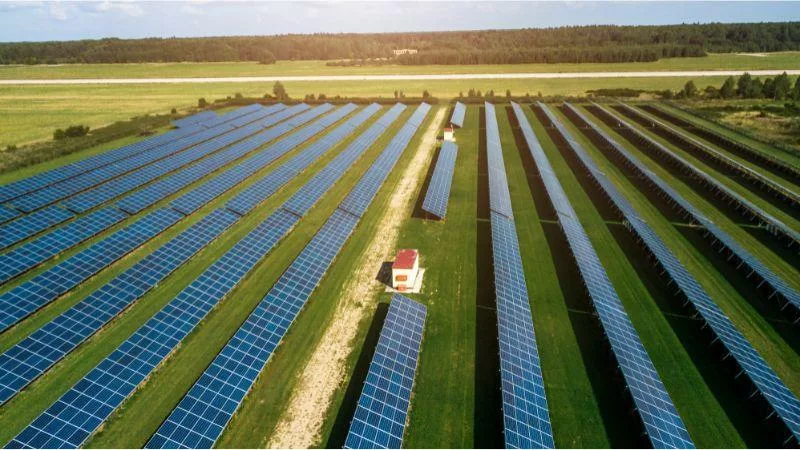
When considering whether to use solar energy for your home or not, it’s important to weigh your options carefully. Start by asking yourself a few key questions:
- What is your budget? Determine how much you’re willing to invest in solar technologies.
- How much sunlight does your location receive? Different areas get varying amounts of sun, which affects efficiency.
- Are you looking for sustainable solutions? Solar power is a renewable energy source that can help you contribute positively to climate change efforts.
Consider the long-term savings on your electric bills with solar panels.
Also, think about how easy it is to maintain solar panels. Unlike some other options, solar power systems typically require minimal upkeep.
By evaluating solar energy’s pros and cons, you can make an informed decision that benefits both your wallet and the planet. This choice can make a significant difference in your energy consumption and overall sustainability efforts.


